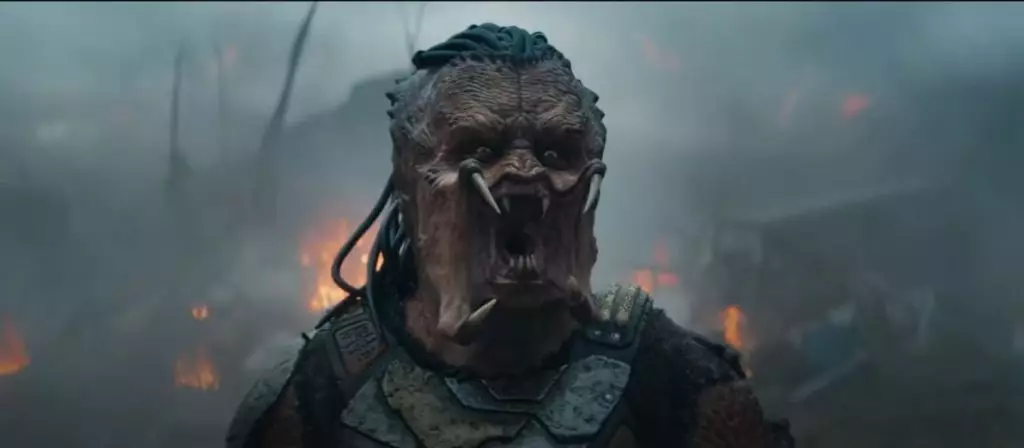In the realm of blockbuster franchises, few are as iconic and enduring as Predator. Since its inception in 1987, it has epitomized the visceral thrill of alien combat, blending sci-fi horror with muscular action. However, the recent reveal of Predator: Badlands signals a troubling departure from what once made the franchise compelling. Despite a promising premise—focusing on a Predator protagonist and devoid of human saviors—the film risks sinking under its own pretensions and misguided innovations. Instead of breathing new life into a beloved universe, it exposes the franchise’s vulnerabilities, revealing a need for more thoughtful storytelling rather than spectacle driven by marketing hype.
A Fragile Balance Between Innovation and Identity
The decision to center Predator: Badlands around an outcast Predator—an unfamiliar protagonist—indicates a bold attempt to shake up the franchise’s formula. Yet, this narrative gamble can prove to be more a gamble than an innovation if not executed with genuine depth. The film’s creative team touts “heart and emotion,” but critics must question whether these qualities are merely superficial surface gloss over shallow storytelling. When the narrative insists on establishing “friendships” between predators and androids, it runs the risk of diluting the core tension that originally distinguished Predator: a relentless hunter and apex predator. Instead of building on that tension, the film leans into sentimentality, potentially alienating core fans who valued the franchise’s gritty, primal roots.
Visual Effects and Practicality—A Mixed Bag
Director Dan Trachtenberg’s choice to incorporate practical effects signals a commendable effort to elevate the film’s realism. In an age where CGI often overshadows tangible craftsmanship, using physical effects lends authenticity. However, even the best practical effects are meaningless if paired with a script that lacks coherence or stakes. The film’s reliance on visual spectacle might attract superficial applause, but it ultimately fails to compensate for a storytelling approach that appears disconnected from the franchise’s original themes of survival, honor, and primal instinct. If the action sequences do not resonate emotionally, they risk feeling hollow, regardless of how meticulously they’re crafted.
Missed Opportunities in Character Development
The film introduces characters such as Thia, a battered android, and Dek, a young Predator’s brother—yet these characters seem to be more props than fully realized individuals. The narrative’s focus on “unlikely friendships” and “emotional depth” feels forced, as their motivations and arcs remain underdeveloped. Instead of exploring the complexities of these new characters, the story seems intent on showcasing them as vessels for visual spectacle rather than compelling entities with agency. This lack of depth undercuts any attempt at genuine engagement, reducing the story to a series of staged confrontations and predictable conflicts.
The Franchise at a Crossroads
The franchise’s evolution seems driven more by marketing strategies than artistic vision. After the lukewarm response to the streaming release of Prey, the decision to give Predator: Badlands a theatrical debut appears as an act of desperation rather than conviction. Fans who cherished the original Predator films, with their gritty tone and iconic Arnold Schwarzenegger-led action, are likely to feel betrayed by this latest installment’s emphasis on high-concept spectacle over substance. It’s a stark reminder that franchises built on primal instinct and survival cannot be maintained solely through visual effects and “heartwarming” character turns. They require a firm grounding in storytelling that honors their roots while daring to explore new avenues with integrity.
The Future of Predator—A Franchise in Need of Rebirth
In critically examining Predator: Badlands, it’s evident that the franchise stands at a precarious juncture. Instead of chasing after reinvented genres or catering to streaming audiences, it should consider returning to its core ethos: raw, primal horror with philosophical undertones about evolution and dominance. A successful rebirth would focus on the mythos that made Predator resonate for decades—respect for the hunter’s code, the terrifying beauty of the hunt, and the brutality of survival. Without a wiser, more nuanced approach, the franchise risks becoming a shell of its former self—flashing spectacle for spectacle’s sake rather than meaningful storytelling rooted in the franchise’s original DNA.

Leave a Reply